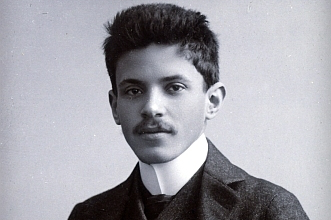After careful deliberation, the committee, composed by Alain Aspect (Institut d'Optique, France), Miguel Navascués (Austrian Academy of Sciences, Austria), Rob Spekkens (Perimeter Institute for Theoretical Physics, Canada), Aephraim Steinberg (University of Toronto, Canada) and Marek Zukowski (University of Gdansk, Poland) awarded the prize to the publication
The paper by Bendersky et al. argues that quantum experiments requiring randomness exhibit a different behavior depending on whether we use pseudo-randomness produced by Turing machines or true randomness. To prove their point, the authors identify situations in which ensembles of quantum states defining the same mixed state become arbitrarily distinguishable when prepared by a computer. Their work also points out a new loophole in the violation of Bell inequalities, stemming from the use of pseudorandom number generators to choose the measurement settings.

